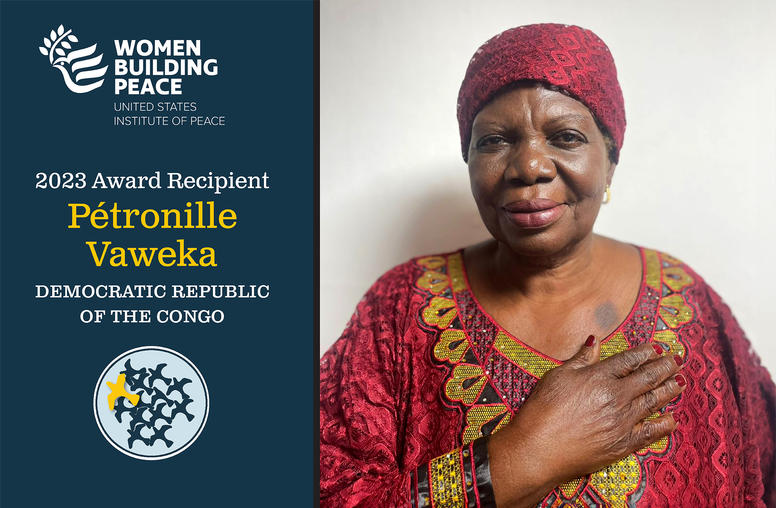USIP Experts React to Developments in Libya
For Immediate Release, October 20, 2011
Contact: Allison Sturma, 202-429-4725
(Washington) – Experts from the United States Institute of Peace (USIP) have been closely monitoring the situation in Libya and are available for comment on the next steps needed to ensure a safe and peaceful transition.
Colette Rausch, director of the Rule of Law Center of Innovation, commented that:
"The war crimes that Moammar Qaddafi has been accused of are horrific in their scope and breadth. That being said, no matter how heinous and reprehensible this behavior, there are international norms that must be applied equally and fairly for a just society to function. This would require that if Qaddafi posed no imminent threat, he should have been subjected to legal process and not summarily executed. On the other hand, if he was killed during combat, then that would be a different equation.
The new leaders of Libya have the opportunity to establish and abide by a just system of governance, based upon the rule of law. The actions Libya’s transitional government takes now can go a long way toward building or undermining public and international confidence in its ability to lead effectively and reintegrate supporters of Moammar Qaddafi back into society. Moving forward, revenge killings must be prevented. By establishing a framework and adherence to the rule of law now — in this transitional, chaotic stage — it can set the course for Libya’s future and reintegration into the world community."
Senior Fellow and noted author Robin Wright stated:
"Out of the 22 Arab countries, Libya is the one – perhaps ironically – with the greatest prospect for a smooth transition. With a relatively small population and vast oil reserves, it has the capacity to create jobs and rebuild the areas damaged in the past 8 months."
"Although there are deeply fractured tribes and clans, it is the one country in the region with a transitional government that has experience with everything from international relations to garbage collectors."
Expanding on the regional implications of Moammar Qaddafi's death, Mona Yacoubian added:
"The death of Moammar Qaddafi will surely resonate in Syria, which is itself in the throes of a seven-month long uprising. It could also accelerate calls for foreign intervention in Syria. Drawing comparisons to NATO intervention in Libya, the Syrian opposition has increasingly questioned the international community’s unwillingness to do more to protect Syrian demonstrators in the uprising where the United Nations estimates the death toll has reached 3,000."
These USIP experts are available for additional comment at:
-
On the Issues by Robert Perito | October 18, 2011
-
News Feature by Thomas Omestad | September 29, 2011
-
Peace Brief by Jason Gluck | September 2011
The United States Institute of Peace is the independent, nonpartisan conflict management center created by Congress to prevent and mitigate international conflict without resorting to violence. USIP saves lives, increases the government’s ability to deal with conflicts before they escalate, reduces government costs, and enhances national security. USIP is headquartered in Washington, DC. To learn more visit www.usip.org.

